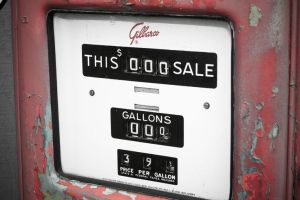Owning a vehicle you might feel that you are losing the battle with the costs of fuel. If your current vehicle is not an ultra-modern fuel-efficient model, you’re likely to see your fuel expenses increasing even further. You don’t have to swap your vehicle with a brand new vehicle just yet. There are ways to get the most out of every drop of gas that you put into your car. Here are a few ideas to get you started:
Keep Your Engine Properly Tuned
Fixing a car that is noticeably out of tune or has failed an emissions test can improve its gas mileage by an average of 4%, though results vary based on the kind of repair and how well it is done.
Fixing a serious maintenance problem, such as a faulty oxygen sensor, can improve your mileage by as much as 40%.
| Fuel Economy Benefit: | 4% |
| Equivalent Gasoline Savings: | $0.10/gallon |
Keep Tires Properly Inflated
You can improve your gas mileage by up to 3.3% by keeping your tires inflated to the proper pressure. Under-inflated tires can lower gas mileage by 0.3% for every 1 psi drop in pressure of all four tires. Properly inflated tires are safer and last longer.
The proper tire pressure for your vehicle is usually found on a sticker in the driver’s side door jamb or the glove box and in your owner’s manual. Do not use the maximum pressure printed on the tire’s sidewall.
| Fuel Economy Benefit: | Up to 3% |
| Equivalent Gasoline Savings: | Up to $0.07/gallon |
Use the Recommended Grade of Motor Oil
You can improve your gas mileage by 1%–2% by using the manufacturer’s recommended grade of motor oil. For example, using 10W-30 motor oil in an engine designed to use 5W-30 can lower your gas mileage by 1%–2%. Using 5W-30 in an engine designed for 5W-20 can lower your gas mileage by 1%–1.5%. Also, look for motor oil that says “Energy Conserving” on the API performance symbol to be sure it contains friction-reducing additives.
| Fuel Economy Benefit: | 1%–2% |
| Equivalent Gasoline Savings: | $0.02–$0.05/gallon |
Replacing a Clogged Air Filter on Modern Cars Improves Performance but Not MPG
Replacing a clogged air filter on vehicles with fuel-injected, computer-controlled gasoline engines—such as those manufactured from the early 1980s to the present—or diesel engines does not improve fuel economy, but it can improve acceleration.
Replacing a clogged air filter on an older vehicle with a carbureted engine can improve both fuel economy and acceleration by a few percent under normal replacement conditions.
Texas Auto services all makes and models!
Some of our most popular services: tune ups, alignments, full line of BG flushes, check engine lights/warning lights, tire replacement, electrical, ABS and traction control, engine, A/C & heating.
Service hours: Monday-Friday 8AM-6PM / Saturday 9AM-3PM / Sunday Closed
Contact Texas Auto Service (281) 938-2059

